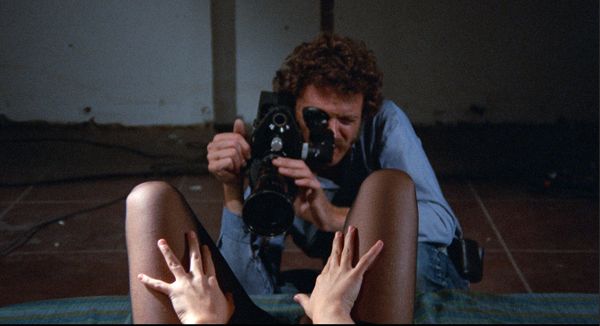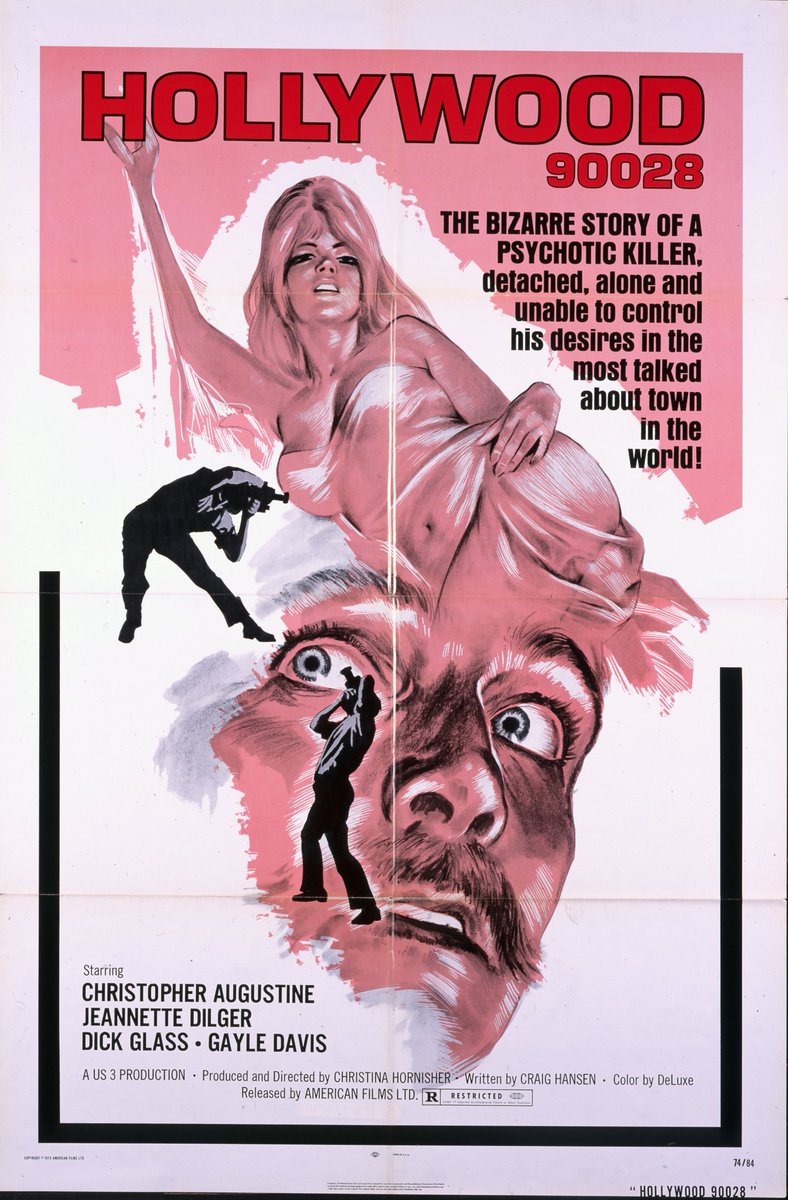Eye For Film >> Movies >> Hollywood 90028 (1973) Film Review
Hollywood 90028
Reviewed by: Jennie Kermode

The tail end of the 1960s saw serial killers becoming a big deal in the US imagination. With its fragmented police system, ease of access to firearms and vast empty areas into which anyone might disappear, the country had always had a problem with them, but the likes of the Boston Strangler and the Zodiac saw them suddenly explode onto front pages, resulting in a curious blend of fascination and panic. Naturally, Hollywood took note. Although hunting them down was initially seen as a women’s rights issue, with pressure from female journalists getting police to take an interest, most of these films were directed by men and framed through a very particular gaze with highly sexualised female victims.
Hollywood 90028 might seem to be more of the same – indeed, its plot closely resembles that of a film which used one of the same locations two years earlier – but thanks to director Christina Hornisher, its gaze is very different. We still see the role that sexual attraction plays in the killer’s actions, but the victims never lose their humanity. His actions are never glamorised and we see him, first and foremost, as a damaged individual. Naturally, this has led to disappointment from some people who see the serial killer genre primarily as a source of entertainment, and it is perhaps for this reason that the film has been neglected. A retrospective screening at the 2024 Fantasia International Film Festival has created the opportunity for a fresh appraisal.
The film follows Mark (Christopher Augustine), a photographer and cinematographer trying to make his mark in the City of Angels. We first see him when he’s going home with a young woman he has only recently met, very much at her instigation. She’s been single for a couple of months, she tells him, and she’s lonely. He sympathises; they make small talk, seeming very much at ease. In her house, whilst they make out, the camera travels around the room, exploring the space she’s created for herself: the clothes, the photographs, the little artistic flourishes, all these things that tell us about who she is. We see Mark’s hands on her body, their faces out of shot. There are gentle caresses. Then his hands move to her throat.
The incident is never spoken of again, but its shadow, and its weight of wasted potential, hangs over the rest of the film. Mark is palpably lonely too. We see him return, the next day, to his minimally furnished upper studio apartment, barely cognisant of sirens in the distance. We see him drive into the city, where a cinema billboard says Kill Them All. He walks past a shop selling diamonds, one with a sign encouraging punters to be ‘lucky’, one offering loans. We see him go to work. He’s shooting uninspiring pornography in a small studio where everybody is professional but no-one seems to have a lot of hope.
There is smog everywhere, foreshortening the horizon, covering the city with dirt. Hornisher intercuts her present day narrative with childhood photos. A boy looking awkward and out of place with his mother and sisters. The arrival of a baby brother whom he dotes on. Then a brief break from realism as a montage of unlikely stills suggests tragedy is this the reason why he came to be the way he is? It seems reductive, but then, we also witness the ongoing stresses in his life. He wants to get more respectable work, to build a career, but it’s difficult when a reputation for working in porn could ruin him and he has little else with which to prove his skill. Trying to build up a portfolio, he goes to the zoo, films a tiger – though this predates Thomas Harris’ book, one might think of Red Dragon or superior take Manhunter. Later we see him wandering round a sex shop as an evangelical preacher can be heard over the radio; everybody’s selling something.
When he hooks up with Michele (Jeannette Dilger), an actress from his work, it's easy to assume the worst, but nothing he does suggests the intention to harm her. They go for a drive; they hang out at her place. She’s in a complicated situation and wants to take things slowly. He’s okay with that. She delivers a lengthy, sympathetic account of how easily a starry-eyed girl from a small town can make her way to L.A., struggle to get by, and find herself trapped in increasingly hardcore porn. To hear this kind of story from a female character without additional sentiment or moralising was vanishingly rare at the time and remains powerful today. Mark’s lack of judgement neatly separates his killing from any socially convenient notion of women deserving to be punished. This complicates his behaviour, because it’s clear that he knows the import of what he’s doing, whilst also suggesting that he may not have conscious control of his actions. Is he experiencing an exaggerated form of the wider despair and lack of agency afflicting those living in the city?
Where serial killers have elsewhere tended to be treated as powerful individuals, even as heroic in their ability to throw off conditioning, here Mark emerges as a symptom of a more deeply troubled society. Hornisher also makes it clear that his crimes can’t make him matter – that they are barely even noticed is less attributable to any skill on his part than to a general lack of interest in the fates of ordinary individuals. The film ends with a dramatic gesture which we know will, in turn, be forgotten altogether. Today, people still ask how the likes of Harvey Weinstein got away with abusing people for so long. Back in 1973, Hornisher already had the answer.
Reviewed on: 30 Jul 2024
















